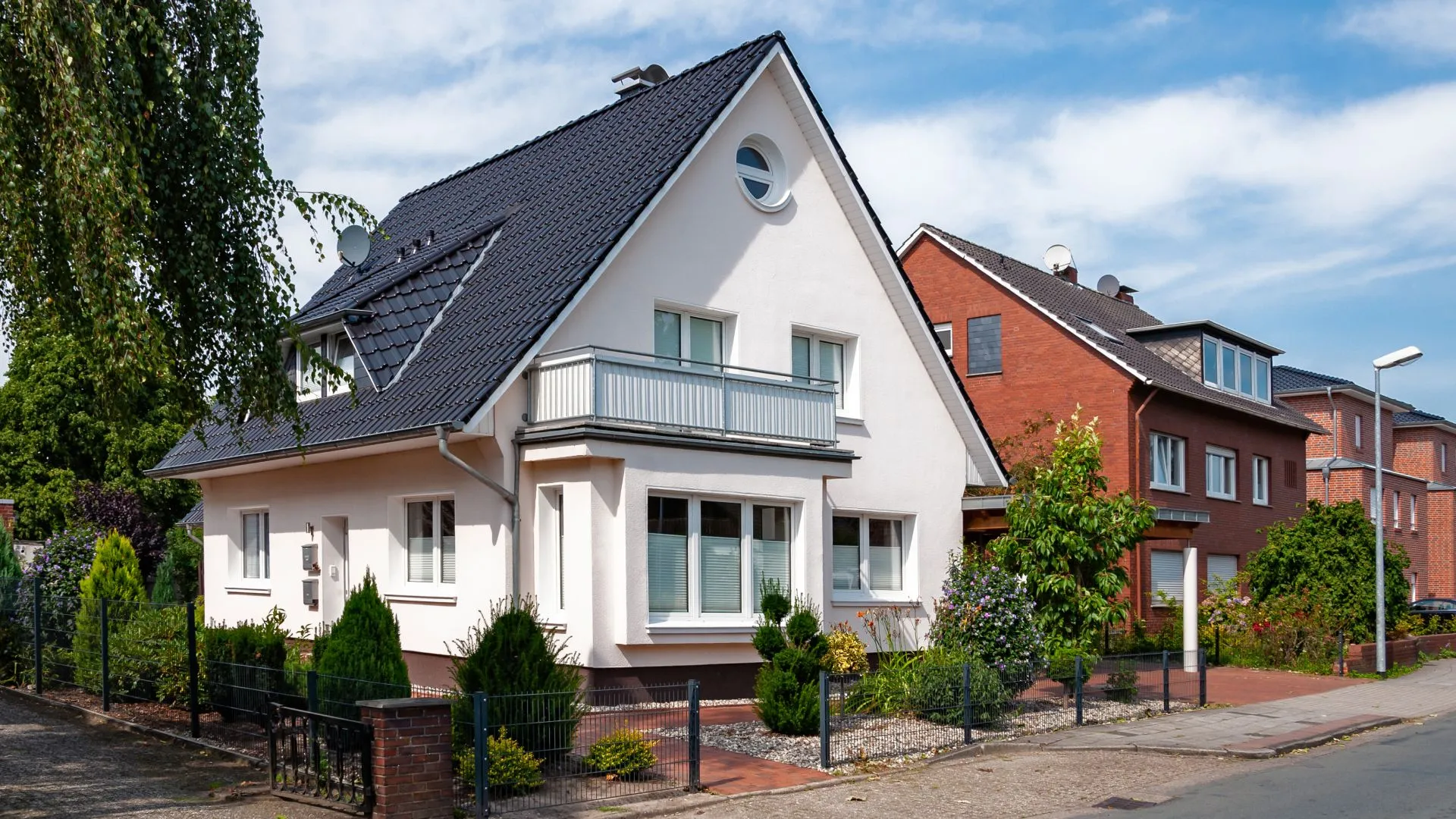Buying Your First Home in Germany? Don’t Miss These Expert Tips

Author
Preet PawarTable of Contents
- Introduction: Why Buying a Home in Germany Is an Attractive Option
- Understanding the German Property Market
- Key Considerations Before Buying Your First Home in Germany
- Step-by-Step Guide to Buying a Home in Germany
- Costs to Expect When Buying a Home in Germany
- Navigating the Legal Aspects of Homeownership
- Finding the Right Location for Your Home in Germany
- The Role of Real Estate Agents in Germany
- Why You Should Consider Energy-Efficient Homes
- Navigating Tax Implications as an Expat Homebuyer
- FAQs
Introduction: Why Buying a Home in Germany Is an Attractive Option
Buying your first home is an exciting milestone, but it can also be a daunting process—especially when navigating a new country's real estate market. As an expat looking to settle in Germany, understanding how to buy property, what financial options are available, and how to manage the legal aspects are crucial for a smooth transaction.
Germany’s real estate market is one of the most stable in Europe, making it an attractive option for expats seeking long-term security and investment opportunities. With affordable mortgage rates, strong tenant protections, and a variety of programs to assist first-time homebuyers, now is a great time to explore the property market in Germany. Whether you're looking to buy a personal residence or invest in property for rental income, understanding the ins and outs of the buying process is essential.
If you're ready to explore your options, use our Real Estate Search Engine to find the best properties or our Property Investment Calculator to estimate your potential returns.
Understanding the German Property Market
Germany’s property market has been historically robust, with steady price growth and high demand, especially in major cities like Berlin, Munich, and Frankfurt. Despite recent shifts in the global economy, the German real estate market continues to offer stability, making it a smart investment choice for both homeowners and investors.
One of the main draws for expats is Germany’s transparent and well-regulated market. Buying property is relatively straightforward, especially when compared to other countries. However, as an expat, there are some nuances to consider, such as understanding financing options, mortgage requirements, and the role of property taxes.
For those new to the market, it’s important to grasp the current trends, such as the demand for energy-efficient homes and eco-friendly renovations, both of which can offer long-term financial savings. Be sure to stay informed on the latest market conditions and explore areas that offer potential for growth. Using our Real Estate Search Engine can help you discover locations that match your investment goals.
Key Considerations Before Buying Your First Home in Germany
Before diving into the German property market, there are several important factors you should consider:
- Financing: Understanding your financing options is critical. In Germany, most expats will need to show proof of income and a strong credit history (Schufa). It's also common to pay a down payment of 10-30% of the property price.
- Credit Score (Schufa): Your Schufa score is a key factor in securing financing in Germany. This score helps lenders assess your creditworthiness and may impact the interest rate you are offered. Make sure to check your score and take steps to improve it before applying for a mortgage.
- Legal Rights: Germany has strong legal protections for both buyers and renters. Be sure to familiarize yourself with tenant laws, the role of notaries in property transactions, and the types of legal documents you will need.
- Taxes and Fees: Property taxes, notary fees, and registration costs can add up quickly. It's important to budget for these additional expenses when calculating the total cost of buying a home in Germany.
Step-by-Step Guide to Buying a Home in Germany
Buying a home in Germany is a straightforward process when you follow these key steps:
- Pre-Approval for a Mortgage: Before you start house hunting, secure mortgage pre-approval from a lender. This will give you a clear idea of how much you can afford and help narrow your search.
- Find the Right Property: Use resources like our Real Estate Search Engine to find properties that meet your needs.
- Make an Offer: Once you’ve found your ideal home, make an offer through a real estate agent or directly with the seller.
- Notary Involvement: In Germany, a notary is required to validate the contract, ensuring that all legal requirements are met before the transfer of ownership.
- Finalize the Purchase: Once the notary has registered the property, you will receive the deed to your new home, and the transaction is complete.
For more information on the mortgage pre-approval process, check out our contact page for expert assistance.
Costs to Expect When Buying a Home in Germany
In addition to the purchase price of the property, there are several other costs you should be aware of when buying a home in Germany:
- Property Transfer Tax: This tax ranges from 3.5% to 6.5% of the purchase price, depending on the state.
- Notary Fees: Notary fees typically range from 1% to 1.5% of the property price.
- Registration Costs: Registering the property with the land registry can cost around 0.5% of the property’s value.
- Real Estate Agent Fees: If you hire a real estate agent, you may pay a commission of 3% to 7% of the purchase price.
Be sure to budget for these additional costs to avoid any surprises during the buying process.
Navigating the Legal Aspects of Homeownership
Understanding the legal framework surrounding property ownership in Germany is essential to ensure a smooth transaction. Here are some key points to keep in mind:
- Notary’s Role: In Germany, the notary plays an essential role in verifying the purchase agreement. They ensure that both parties understand the terms of the deal and the transaction is legally binding.
- Property Registration: Once the sale is finalized, the notary registers the property in the land registry, officially transferring ownership to you.
- Tenant Rights: If you’re renting out your property, familiarize yourself with tenant rights in Germany. The country has strong tenant protections, which means you must adhere to specific regulations when managing rental properties.
Finding the Right Location for Your Home in Germany
Germany’s real estate market offers a wide range of locations for potential buyers. When choosing the right neighborhood, consider factors such as:
- Proximity to Work or School: Choose a location that is convenient for your work or family needs.
- Transport Links: Consider the availability of public transport and the ease of access to major highways.
- Neighborhood Safety: Research crime rates and general safety in the area.
- Investment Potential: Look for areas with potential for property value appreciation.
For further assistance in finding the best properties in Germany, use our Real Estate Search Engine to explore available options.
The Role of Real Estate Agents in Germany
In Germany, real estate agents play an important role in facilitating the buying process. They can help you find properties that meet your needs, negotiate with sellers, and navigate the legal complexities. Make sure to choose an agent who is experienced in working with expats and understands the unique challenges they face when buying property in Germany.
Why You Should Consider Energy-Efficient Homes
Energy-efficient homes are not only better for the environment but can also save you money in the long run. These properties typically come with lower utility bills, government incentives, and higher resale value. Look for properties that are certified as energy-efficient or are eligible for tax incentives for energy-efficient renovations.
Navigating Tax Implications as an Expat Homebuyer
As an expat, you may face different tax rules when buying property in Germany. Understanding property taxes, tax breaks, and potential deductions is crucial for ensuring your financial success. Consult with a tax advisor to make sure you’re making the most of available tax incentives.
FAQs
Do I need a residency permit to buy property in Germany?
No, there are no restrictions on foreign nationals buying property in Germany. However, financing may be more difficult for non-residents.
How much deposit is required for buying a home in Germany?
The typical deposit requirement is between 10% and 30% of the property’s purchase price, depending on your financing and the lender.
What are the property taxes in Germany?
Property transfer taxes in Germany range from 3.5% to 6.5% of the property price, depending on the state.
How can I finance my first home in Germany?
Expat buyers can obtain mortgages from German banks. You will need proof of income, creditworthiness, and possibly a down payment of 10-30%.
Can I buy a house in Germany as a foreigner?
Yes, foreign nationals can buy property in Germany without restrictions, although financing may require additional documentation.
What costs should I consider when buying property in Germany?
Aside from the purchase price, consider notary fees, property transfer tax, registration fees, and real estate agent commissions.
How do I find the best properties in Germany?
Use our Real Estate Search Engine to browse available properties and connect with local agents.
What documentation is required to buy property in Germany?
Typically, you'll need proof of identity, proof of income, mortgage pre-approval, and a signed contract with the seller.
Is it better to invest in residential or commercial property?
This depends on your investment goals. Residential properties offer stable rental income, while commercial properties offer higher returns but may come with more risk.
Conclusion
Buying a home in Germany can be a rewarding investment, offering financial security, potential appreciation, and an attractive living environment. By understanding the process, knowing the costs involved, and choosing the right property, you’ll be well on your way to securing your dream home. For more personalized guidance, don’t hesitate to contact us.



